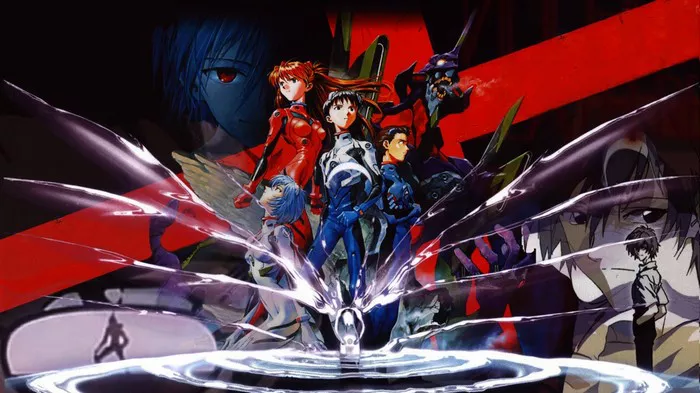Neon Genesis Evangelion” (commonly referred to as “Evangelion”) stands as a seminal work in the realm of anime, captivating audiences worldwide since its debut in 1995. Created by Hideaki Anno and produced by Gainax, this iconic series has sparked intense debate and discussion among fans and critics alike. From its intricate narrative and complex characters to its philosophical themes and psychological depth, “Neon Genesis Evangelion” has left an indelible mark on the medium of anime. But the question remains: is “Neon Genesis Evangelion” truly good? In this comprehensive analysis, we delve into the various aspects of the series to uncover its merits and shortcomings.
Setting the Stage: The World of “Neon Genesis Evangelion”
Before delving into the question of whether “Neon Genesis Evangelion” is good, it’s crucial to understand the context in which the series unfolds. Set in a dystopian future where humanity is on the brink of extinction, “Neon Genesis Evangelion” follows the story of Shinji Ikari, a reluctant teenager who is thrust into the role of piloting a giant biomechanical robot known as an Evangelion. Tasked with defending humanity against mysterious beings known as Angels, Shinji navigates a world fraught with existential angst, personal turmoil, and moral ambiguity.
At its core, “Neon Genesis Evangelion” is a mecha anime that subverts many of the genre’s conventions. While the series features intense battles between giant robots and otherworldly foes, it also delves into deep philosophical and psychological territory, exploring themes such as identity, trauma, isolation, and the nature of existence. This unique blend of action, drama, and introspection sets “Neon Genesis Evangelion” apart from other anime of its time and continues to define its legacy to this day.
The Good: What Makes “Neon Genesis Evangelion” Stand Out
Complex Characters: One of the defining aspects of “Neon Genesis Evangelion” is its richly developed cast of characters. From the introspective Shinji Ikari to the enigmatic Rei Ayanami and the brash Asuka Langley Soryu, each character is imbued with depth, nuance, and complexity. Their struggles, flaws, and internal conflicts drive the narrative forward and invite viewers to empathize with their experiences.
Deep Themes: “Neon Genesis Evangelion” tackles a wide range of philosophical and psychological themes with maturity and depth. From the nature of consciousness and the human condition to the impact of trauma and the search for meaning in a chaotic world, the series invites viewers to engage with thought-provoking ideas that resonate on a profound level.
Artistic Direction: Hideaki Anno’s visionary direction and the talented team at Gainax imbue “Neon Genesis Evangelion” with stunning visuals, striking imagery, and innovative animation techniques. The series seamlessly blends traditional hand-drawn animation with computer-generated imagery, creating a visually arresting aesthetic that remains visually captivating decades after its initial release.
Narrative Complexity: “Neon Genesis Evangelion” is renowned for its intricate and multilayered narrative. The series weaves together elements of science fiction, psychological drama, religious symbolism, and political intrigue to create a story that defies easy categorization. As viewers peel back the layers of the narrative, they uncover hidden meanings, symbolism, and allegory that add depth and richness to the storytelling.
Cultural Impact: Beyond its artistic merits, “Neon Genesis Evangelion” has had a profound cultural impact since its release. The series has inspired countless works of fan fiction, fan art, academic analysis, and even religious and philosophical discourse. Its influence extends beyond the realm of anime and has permeated popular culture in ways that few other series have achieved.
The Bad: Criticisms of “Neon Genesis Evangelion”
Pacing Issues: Some viewers have criticized “Neon Genesis Evangelion” for its uneven pacing, particularly in the latter half of the series and the accompanying film, “The End of Evangelion.” The rapid escalation of the plot and the introduction of increasingly esoteric concepts can be jarring for viewers, leading to confusion and frustration.
Ambiguity and Open-endedness: While many viewers appreciate the ambiguity and open-endedness of “Neon Genesis Evangelion,” others find it frustrating and unsatisfying. The series’ ambiguous conclusion and its deliberate refusal to provide clear answers to many of its central mysteries have sparked debate and speculation among fans but have also left some feeling unsatisfied.
Character Development: While “Neon Genesis Evangelion” boasts a richly developed cast of characters, some viewers have criticized the series for its treatment of certain characters, particularly its female protagonists. Critics argue that characters like Rei Ayanami and Asuka Langley Soryu are reduced to archetypes or plot devices rather than fully fleshed-out individuals.
Themes of Alienation and Despair: “Neon Genesis Evangelion” is known for its bleak and existential themes, which may not resonate with all viewers. The series explores concepts of alienation, despair, and nihilism in a way that can be confronting and unsettling for some audiences. While these themes contribute to the series’ depth and complexity, they may not be to everyone’s taste.
Controversial Content: “Neon Genesis Evangelion” contains elements of violence, sexual imagery, and psychological distress that may be disturbing or triggering for some viewers. The series’ unflinching portrayal of trauma and its exploration of dark and taboo subject matter have sparked controversy and debate among critics and audiences alike.
Conclusion: The Legacy of “Neon Genesis Evangelion”
In conclusion, the question of whether “Neon Genesis Evangelion” is good is ultimately subjective and open to interpretation. While the series has its flaws and detractors, its undeniable impact on the world of anime and popular culture cannot be denied. “Neon Genesis Evangelion” remains a groundbreaking work that continues to provoke thought, inspire creativity, and challenge conventions decades after its release. Whether one considers it a masterpiece or a flawed gem, there’s no denying the lasting legacy of “Neon Genesis Evangelion” and its enduring significance in the annals of anime history.


